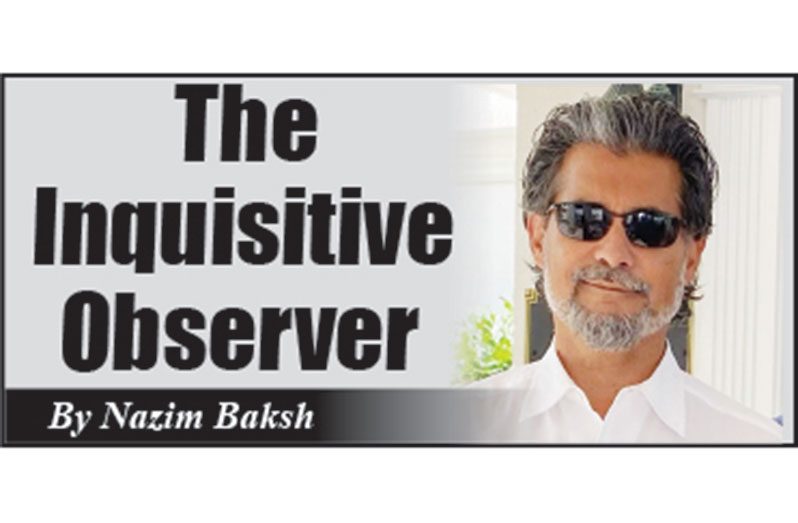THE GECOM fraud trial has been sputtering like a car with an engine that’s been misfiring for four long years. And yet, there it was again last week, now a brand-new trial that is still apparently flailing, but nonetheless still deserving of public attention.
It is no longer subjected to an indictable process, but is now a summary trial of nine accused before Chief Magistrate Faith McGusty. She appears determined to kick the errant engine into gear, a task that her predecessor, Magistrate Leron Daly, had failed to do before having to step aside due to ill health.
The testimony from 72 witnesses the prosecution intends to call into Magistrate McGusty’s courtroom in the coming weeks and months means that this trial will likely run headlong into the upcoming elections. The prosecution intends to call ministers, government officials, forensic experts, and police officers to testify.
Last Monday, the accused entered not guilty pleas as a total of 19 charges were read out to them, the word, ‘misconduct’, often. This is not the kind of misconduct you’d expect from a rowdy group at a crowded mall; this is not bad behaviour of a drunk in public. These particular charges of “misconduct” have to do with the forging of documents, and conspiracy to defraud the Guyanese public. It was an attempt to deny the political party that won the most votes in a democratic election from taking office.
The prosecution team intends to demonstrate that the accused inflated the number of votes that Guyanese cast for APNU+AFC while deliberately stifling the numbers for the PPP/C. An official national recount supervised by GECOM and a high-level CARICOM team determined that the PPP/C won the 2020 elections by over 15,000 votes.
What’s at the epicenter of this trial is an attempt by a cabal to subvert the foundation of our democracy, and to undermine our freedom as a people to choose who will govern in our name. It is why, on this day, February 23, 1970, our nation severed ties with the British monarchy and our ugly colonial past, and aspired to have us; we the people, hammer out our own destiny. If found guilty, the accused, some of whom were the most senior officials in GECOM, could face up to three years in prison on each charge.
I was in court when the prosecution called its first witness, Rosalinda Rasul, to the stand. Rasul happens to be the head of the Diaspora Unit at the Ministry of Foreign Affairs and International Co-operation, and she is no ‘couch potato’. During the elections of 2020, she was an observer with the American Chamber of Commerce.
Defence attorneys Eusi Anderson and Darren Wade deployed a strategy from the familiar playbook. I had seen it before when the matter was before Magistrate Daly. While Attorney-at-Law Nigel Hughes sat quietly in his chair, Wade and Anderson objected, interrupted loudly and as frequently as possible. The objective was to rattle the prosecution and the witness.
If Rasul said she heard a loud noise in the tabulation room at the Ashmin’s Building, Anderson would jump to his feet and bellow out a cheeky comment that reeked of insincerity and arrogance. The difference this time was that the pleasant and smiling Magistrate McGusty was starting to get annoyed.
Finding it hard to mask his disdain for Rasul, Anderson accused her of having “a fantastic memory which gets better as the day goes by”. On another occasion, he questioned the “evidentiary value” or the “relevance” of Rasul’s testimony with insults and even more cheeky comments. They accused the prosecution of making “a mockery of the rules of disclosure” for the flimsiest of details not contained in Rasul’s disclosure. They had it four years ago.
In response to a basic question posed to her by Attorney-at-Law Latchmie Rahamat, Anderson again interrupted Rasul. He leapt to his feet with much drama to declare that his client’s constitutional right to a fair trial was being violated. Magistrate McGusty assured Wade and Anderson that she will “sift the corn from the chaff”.
Magistrate McGusty repeatedly reminded the defence attorneys that they will have an opportunity to cross-examine the witness. These are seasoned lawyers who needed no reminder. Anderson even told the court at one point that he was objecting because he didn’t want Rasul’s testimony to be entered into the record.
And why was Rasul’s testimony so compelling? She is only beginning to paint a preliminary eyewitness account of the tabulation room at the Ashmin’s Building. What will happen when the evidence begins to show false entries on the now infamous “spreadsheet”?
What about evidence pertaining to a sudden medical emergency of none other than the Returning Officer of Region Four in the middle of a tabulation process, or a bomb threat that turned out to be nothing but a hoopla, and someone’s idle doodling on a styrofoam cup?
DISCLAIMER: The views and opinions expressed in this column are solely those of the author and do not necessarily reflect the official policy or position of the Guyana National Newspapers Limited.



.jpg)









